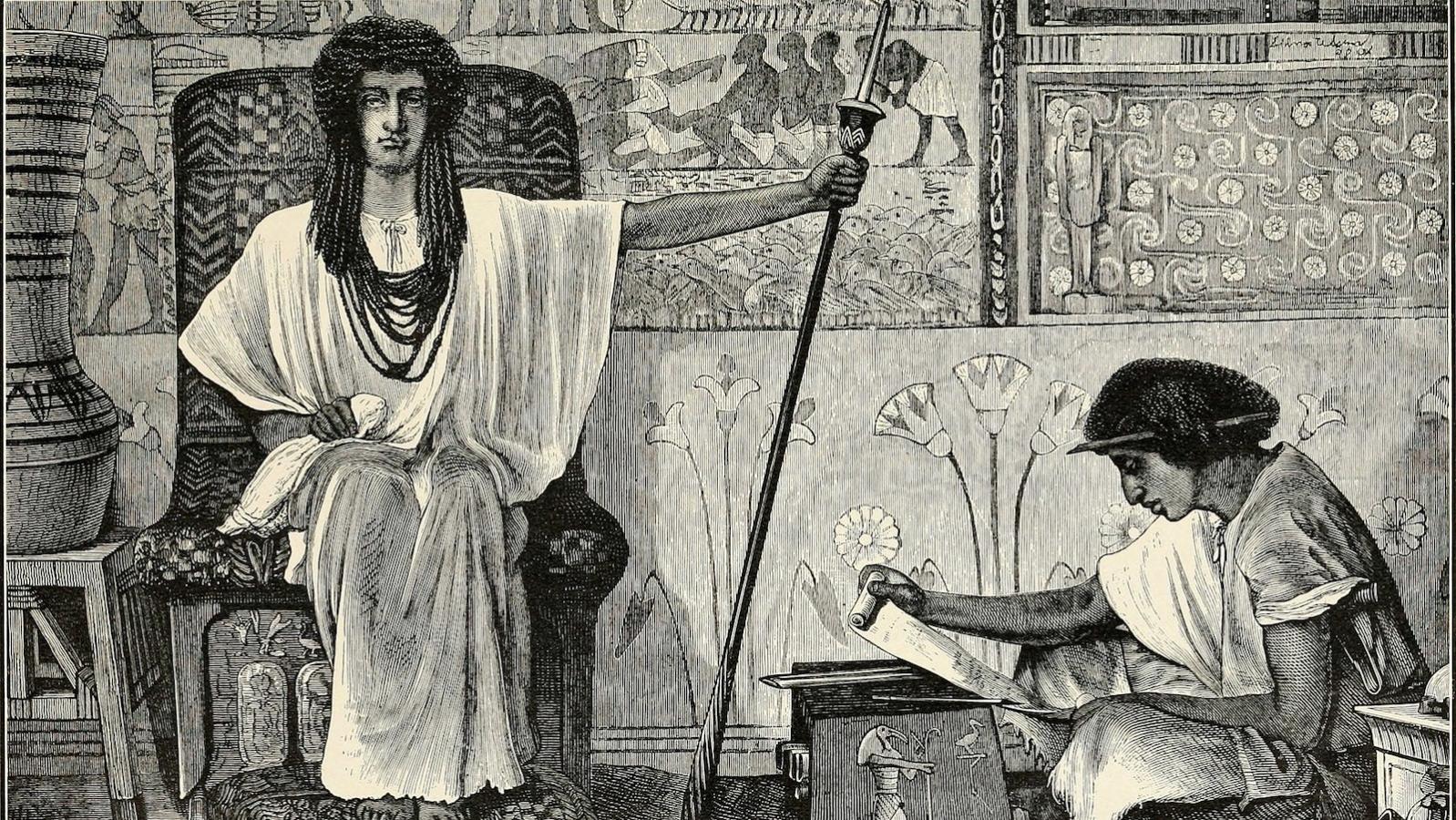Commentary on Parashat Vayigash, Genesis 44:18-47:27
Joseph is a paragon of foresight, self-discipline and concern for the larger community. As we saw previously in Parashat Miketz, Joseph used prophetic insight to instruct Egypt to make provisions during the seven years of plenty for the seven-year famine that would follow. He had sure knowledge of an impending human-ecological problem and gathered grain in the time of plenty as insurance against hard times to come.
In this week’s portion of Vayigash, we see how Egypt benefits from the provisions that Joseph stored. In the years before the famine, the Egyptians were obliged to show restraint–to consume less in return for non-material gain, in this case the surety of survival in leaner times.
As Rabbi Greenbaum of Jerusalem comments, “Joseph used the seven years of plenty to teach the Egyptians to put limits on immediate consumption and gratification in order to save for the future.” As we will explore below, this is a lesson that modern societies sorely need to learn.
As it turned out, during the second year of the famine, all the Egyptians’ stored grain rotted. The Midrash says that when the Egyptians came to Joseph for food, he insisted they circumcise themselves and thereby symbolically commit themselves to a path of self-restraint. After selling their livestock for food, they sold themselves and their land. (Genesis 47:13-19)

Help us keep Jewish knowledge accessible to millions of people around the world.
Your donation to My Jewish Learning fuels endless journeys of Jewish discovery. With your help, My Jewish Learning can continue to provide nonstop opportunities for learning, connection and growth.
Rabbi Daniel Kohn explains that Joseph ultimately brought the Egyptians to a point where they had concern for and a relationship with the earth (“and the land will not become desolate,” Genesis 47:19), even though by that time the land no longer belonged to them.
Certainty & Power
Joseph had two distinct advantages in implementing his plan for safeguarding Egypt–advantages we lack today:
1. His knowledge of the future was perfect (Joseph having been prophetically told by God through Pharaoh’s dreams what would transpire).
2. As second-in-command to Pharaoh, his control of the Egyptian agrarian system was absolute and his ability to carry out his plan complete.
Some level of uncertainty is inherent in many current environmental problems, particularly climate change, and the predictive ability of even the most advanced computers for these most complex phenomena, especially those further in time or in narrow geographical areas, is limited. Thus, it is a much greater challenge to plan and execute wise environmental policies based on predictive knowledge.
Nevertheless, commitment to some basic environmental management principles and values, such as the precautionary principle, should be a guide for environmental planning in the face of uncertainty. The precautionary principle implies “…a willingness to take action in advance of scientific proof [or] evidence of the need for the proposed action on the grounds that further delay may prove ultimately most costly to society and nature, and, in the longer term, selfish and unfair to future generations.”
In the context of climate change and increasing energy insecurity, this translates into governments, corporations, and civil society spurring innovations in technologies, institutions, business practices, and social norms that will reduce fossil fuel consumption and carbon dioxide emissions.
In addition, developing renewable, carbon-neutral sources of energy for modern society is a necessity. To have practiced foresight like Joseph, this would have implied making these investments in earnest decades ago, when the ecological indications of potential anthropogenic climate change were speculative or tentative. Had we developed such foresight and the ability to act on it, we would not have waited until just recently to take the issue seriously, now when the first deleterious effects of climate change are already noticeable, with much worse to come.
Even today, when concerned economists emphasize how relatively little sacrifice of the one-time world gross domestic product would be necessary to invest in effective greenhouse gas mitigation, vested interests in well-to-do countries are reluctant to forego even this. Their leaders march to the beat of global financial markets and short election cycles; they cannot judiciously plan for the future because in an economy where shareholders demand high returns in the current fiscal period and consumers demand instant gratification, future concerns barely matter.
Socially-Aware Pragmatism
Returning to Joseph’s self-discipline, we learn from the text that Joseph did not have children during the famine and even that he may have deliberately limited his offspring before the famine because of his knowledge that it was about to occur: “Now to Joseph were born two sons–when the year of the famine had not set in… (Genesis 41:50)” Rashi comments: “From here [we see] that it is forbidden for a person to have marital relations during years of famine.”
The talmudic source of this proscription is a statement by the sage Resh Lakish (Babylonian Talmud, Taanit 11a). Tosafot clarifies that this stricture applies to one who wishes to act especially piously, as Joseph did, but does not necessarily apply to the rest of the people, as is shown by the fact that Levi fathered Yocheved (Moses‘ mother!) during the famine.
However, the Torah Temimah has a different view on Joseph, explaining that his self-imposed abstention from having children during the famine, while Levi bore Yocheved, teaches that the obligation to refrain from increasing the population during times of communal distress falls specifically on the wealthy, those who already have abundance.
Rabbi Natan Greenberg explains that Joseph’s decision was in part a pragmatic one based on a broad, socially-aware perspective that in times of famine the collective is not served by having more mouths to feed. In addition, even as a high Egyptian potentate, Joseph made a principled decision to involve himself personally in the suffering of his community.
Ba’al HaTurim and Maharim note that Joseph’s actions here merited the blessing that Moses gives him in Deuteronomy that he would increase from the blessing of the land.
Reducing Consumption
Population and consumption are two fundamental drivers of environmental stress. In Joseph’s time, when the vast majority of the population lived much closer to subsistence levels, foregoing another child would have been the appropriate gesture of solidarity and en masse would have made a difference.
In developed countries in today’s world, where fertility is relatively low (and Jewish fertility in a country such as the U.S. particularly low), reducing environmentally significant consumption is much more important.
In today’s globalized, highly interconnected world of instantaneous communication, the notion of the community is necessarily much larger than it was even 50 years ago. Is it acceptable for wealthy Jews in developed nations to follow the current consumerist ethos, with its high attendant levels of energy and material consumption, when people in their cities, country, or world are suffering miserable poverty, are malnourished, and live in environmentally degraded conditions? Particularly when this consumption is indirectly accelerating the world’s environmental decline?
As a fundamental matter of energy policy, to ensure long-term energy access and security for everyone, developed countries must moderate their high energy consumption so that energy resources are available and affordable to lift the world’s poorest out of poverty–without exceeding the earth’s ecological carrying capacity. This is as much a moral issue as a matter of technology or economics, and as such it requires strong national-political commitment, and personal ethical commitment.
The implication today is that in a world in which a large percentage of the population is suffering privation in basic needs, including food and water, and in which rampant consumerism is driving a significant part of the global environmental decline–which impacts the poor disproportionately more than others–the wealthy can reign in their environmentally significant consumption and do not always have to live to the fullest extent of their economic abilities.
We should refrain from overconsumption when others in the world are suffering extreme (financial and ecological) poverty now and when indications are mounting that today’s ecological recklessness is impoverishing the world for the future.
Channeling more funds into helping the less fortunate rather than indulging in more highly material and energy-consuming goods and leisure activities is tzedakah (charity) for people and tzedek (justice) for the earth. We should replace today’s model of immediate material gratification as well as conspicuous consumption with Joseph’s model of foresight, self-discipline, and concern for the common good.
Provided by Canfei Nesharim, providing Torah wisdom about the importance of protecting our environment.




